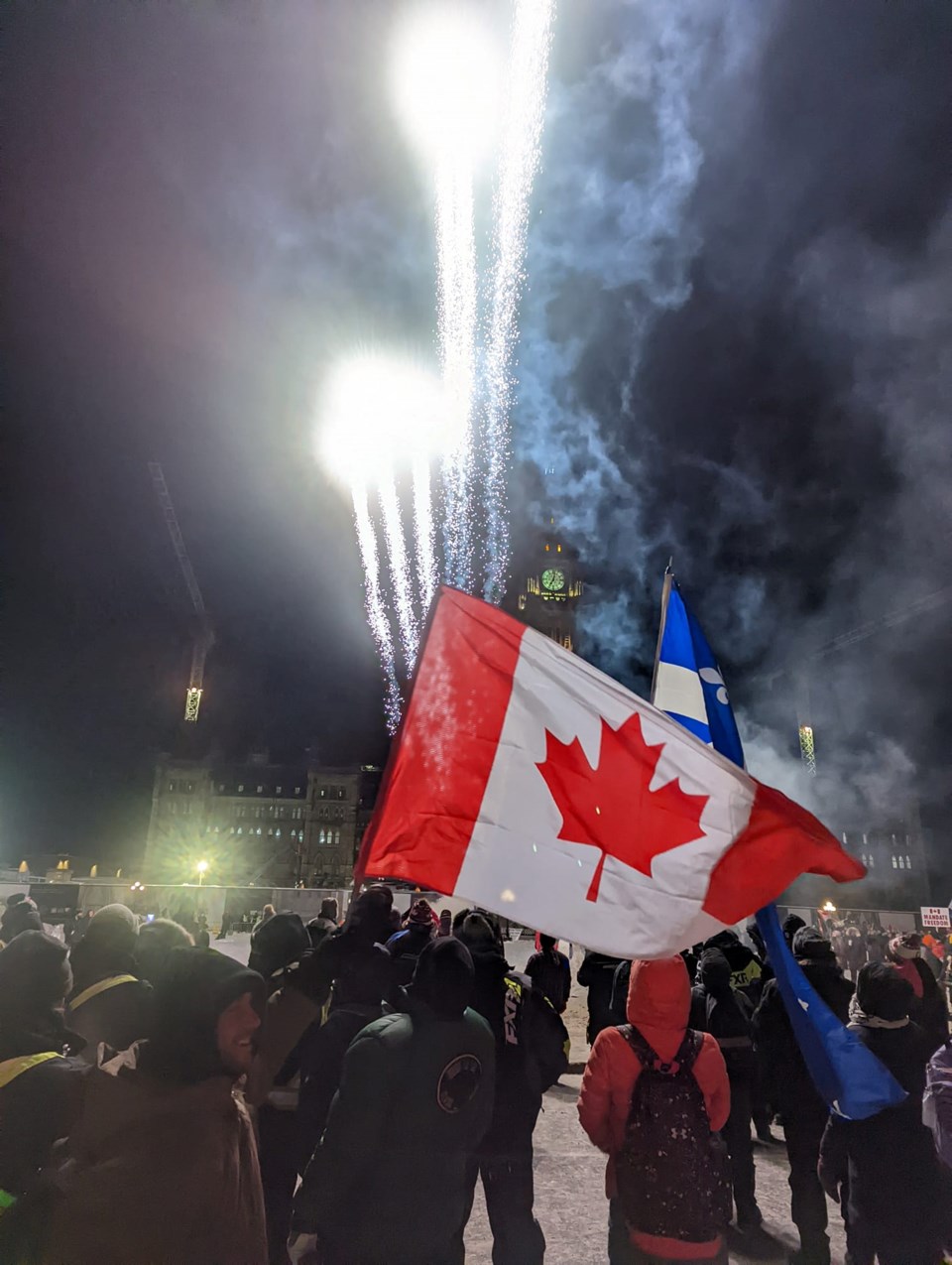B.C.’s Human Rights Tribunal has dismissed a case from a Richmond city employee who claimed he was discriminated against on political grounds for opposing COVID-19 vaccination policies.
Tribunal member Theressa Etmanski said in a Dec. 18 decision that Nathan Duarte is a member of the Canadian Union of Public Employees, Local 394 and had served on the union’s executive.
And, she said, Duarte returned from the Ottawa Freedom Convoy protest in 2022 and tested positive for the virus.
She said Duarte described himself as having two types of political beliefs, “pro-union” beliefs and beliefs opposing mandatory vaccination policies.
“In his complaint, he alleges that he was treated adversely by the city because of these political beliefs,” Etmanski said.
But, she said, she was unable to assess whether his beliefs related to the union were genuinely held, or a passing position taken for convenience in the case.
“Similarly, I cannot discern if his pro-union beliefs are about his own personal interests, or something broader than himself,” Etmanski said.
The city applied for the complaint to be dismissed, saying Duarte had no reasonable prospect of establishing that membership in a union is a political belief.
Further, the city said the allegations were speculative, that it could show that any alleged adverse treatment was based on the application of established city policies and procedures rather than because of any political belief.
The dispute
The city announced its vaccination policy in October 2021, prompting Duarte to post on or around Oct. 25 or 28, 2021, his opposition to the policy and vaccinations in general.
On Oct. 26, 2021, Duarte emailed the city’s chief administrative officer (CAO) expressing concerns about the city’s implementing the vaccination policy. The CAO responded to Duarte’s email the same day and copied the mayor in his response.
On Oct. 28, 2021, Duarte was reminded about the city’s social media directive and the city’s expectations regarding his communications in future.
The city said Duarte removed the post and that it did not discipline him for the post or email to the CAO.
Sometime in or around 2021, Duarte injured his back.
The parties agree that on Jan. 31, 2022, Mr. Duarte’s physician provided a medical note indicating that he was unable to work from Jan. 31, 2022, to Feb. 4, 2022.
The city disability, health and wellness (DHW) specialist called Duarte, confirmed that Duarte needed to be off work due to his injury and told Duarte that he would need to provide medical forms medically clearing him to return to work on Feb. 7, 2022.
Duarte returned to work on Feb. 7, 2022, but did not provide the requested medical forms.
He worked again on Feb. 10, 2022.
“On Feb. 11, 2022, the parties agreed that Duarte called in sick to work,” Etmanski said. “Duarte says he travelled to Ottawa for the Freedom Convoy protest that day. He had booked off February 14, 2022, as a vacation day.”
When he returned from Ottawa, Duarte tested positive for COVID-19.
Etmanski said he had not yet filed the back injury return-to-work documents
“Duarte says he refused to provide a medical note related to his COVID-19 infection, because it went against public health guidance at the time as such medical notes created a strain on the health-care system and risked spreading infection to the public,” Etmanski said.
The city said it did not request a COVID note.
According to the city, Duarte returned to work Feb. 21, 2022
On March 7, 2022, Duarte attended an investigation meeting with his manager, the DHW specialist, other human resources employees, and a union representative. The city said the meeting was to discuss the back pain, inappropriate emails, and behaviour expectations.
“Duarte says that during the March 7 meeting city staff in attendance asked him about his activities in Ottawa,” Etmanski said. “He further says that city staff in attendance questioned the legitimacy of his back injury and advised that his prolonged absence was not ‘good optics.’”
The city denied that.
The decision
Etmanski said that, to prove his complaint at a hearing, Duarte needed to prove that he had a characteristic protected by the B.C. Human Rights Code, that he was adversely impacted in employment and his protected characteristic was a factor in that adverse impact.
The city said Duarte had not presented information to support that protection based on political belief was invoked in the case because membership in a union or a position on the union executive is not a political belief under the code.
Etmanski said previous cases involving political belief and connections with trade union activity involved factual foundations to determine a finding of political belief.
She said Duarte only provided vague statements about support for union activities and upholding the collective agreement.
“He has not provided any information to explain the nature of his beliefs or how his involvement with the union was political in nature in these circumstances,” Etmanski said. “I am not persuaded that there is a sufficient tangibility to his beliefs, as he has not clearly articulated what it is about the union’s activities or the collective agreement that he believes in or provided any basis for these beliefs.”




